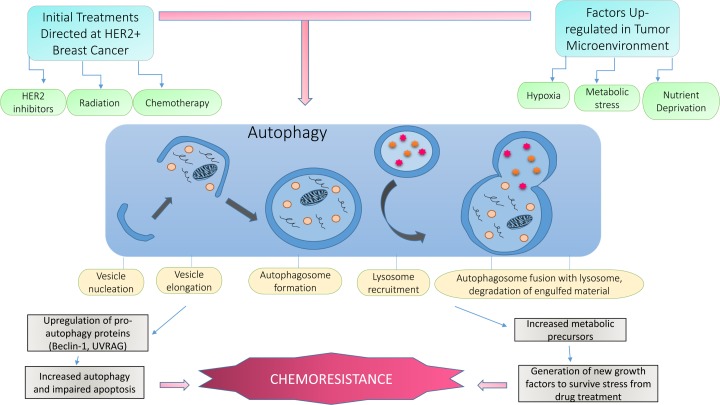Figure 1.
The upregulation of autophagy in HER2-positive breast cancer cells. This diagram depicts the normal process of autophagy and how typical inducers of autophagy are heightened within the tumor microenvironment. Although normal cells respond to cellular stress by undergoing autophagy or apoptosis, in cancer cells these stressors are constantly present, resulting in increased autophagy dependence for survival. Hypoxia, nutrient and growth factor deprivation, limited space due to increased growth demands, and metabolic stress are a few of these internal autophagy stimulators. In addition, most, if not all, cancer therapeutics including chemotherapy, radiation, and targeted HER2 therapies induce autophagy in breast cancer cells because they act as chemical stressors. These continuous stress signals cause breast cancer cells to upregulate this process for survival. Since these cells are autophagy-“addicted” for survival, they are better able to adapt to the targeted therapies they are exposed to, resulting in resistance to HER2 inhibitors.

